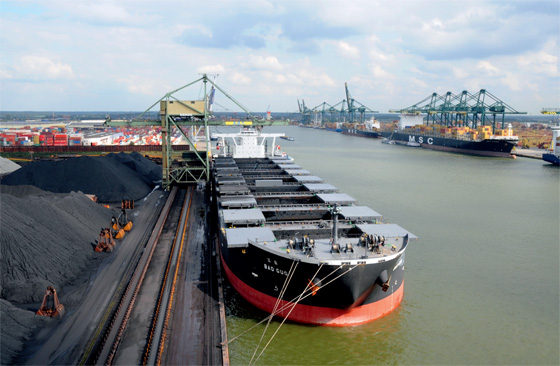
Coal India trades in red hours after Baltimore bridge collapse shuts major coal shipping port
NEW DELHI : Shares of Coal India traded in the red intraday after making some early gains on March 27. The movement in share price of the coal miner was seen hours after a large containership crashed into the Baltimore bridge, shutting down the second largest exit point for coal shipments from the US for now.
The 1.6-mile Baltimore bridge caved in when the large containership rammed into it on March 26 US time.
The coal that is shipped out of Baltimore includes a large portion of thermal coal imported by India for electricity generation. In 2023, India imported 7.27 million tonnes of coal from the US.
According to experts, coal exports from the port could be blocked for around six weeks with 2.5 million tonnes of coal held back from shipping. The closure of this hub could lead to disruption in the global supply chain.
“In terms of coal prices, restriction of thermal coal from Baltimore may result in an upward movement. In a situation where demand remains constant or even increases while supply contracts due to reduced availability of thermal coal; market forces dictate that prices go up. This hike could have wider implications on numerous stakeholders including power producers, consumers as well as other exporting regions for minerals such as coals,” said Vaibhav Kaushik, research analyst at GCL Broking.
According to ship-tracking data from Kepler, traders exported around 22.9 million tonnes of coal in 2023 from the Baltimore port to India, China and Europe. This represented around 27 percent of all seaborne coal exports from the US.
On March 26, domestic brokerage Emkay Global initiated coverage on Coal India with a ‘buy’ rating and target price of Rs 550, implying a 34 percent upside.
“Although we strongly endorse the energy-transition narrative and that renewable energy would dominate the global energy mix, we believe India’s large population and expansive scale make it unfeasible to phase out the use of coal for the next decade at least,” said the brokerage.
